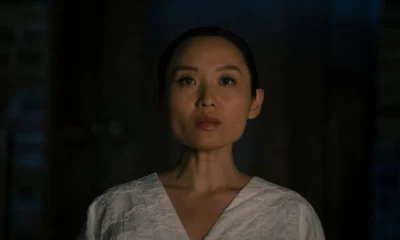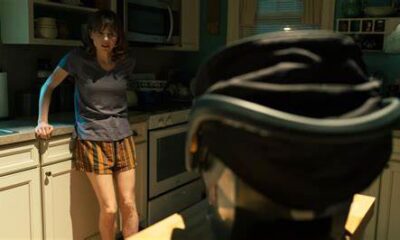
Haunted MTL Original – The Rat – Ben Gartner
The Rat by Ben Gartner
Marie DesJardin killed her husband with a shotgun, but it wasn’t murder; it was mercy.
Pierre DesJardin was a scientist, eager to make a name for himself. One of those young men who is smarter than the people hiring him, but who doesn’t have the patience to explain to them how their slow climb up the scientific ladder makes them stuck in the old ways compared to our modern “Fail Fast” era. Pierre was the high school student who mixed too much of the solutions together in Chemistry class to see what would happen, specifically when the teacher warned about straying from the directions. However, he’d inflate the proportions in the right and precise doses to elicit a bigger effect. His only crimes were anticipating the results his professors hadn’t.
“It’s sort of a quantum entanglement device, but uses a raw substrate to redraw the target matter,” he explained to Marie.
“A glorified three-D printer?” she teased.
He smiled with eyes half-slits and the corner of his mouth turned up in a devilish grin. “Yes, a glorified three-D printer,” he responded, sarcasm dripping from his words. He loved her teasing, though it was part of the charade for him to pretend to be offended.
Marie perked her eyebrows and adjusted her glasses, then leaned back into the eyepiece of her microscope. Research into the mitotic processes of one-celled organisms was her specialty, and she was nearing completion of a paper her mentor, Dr. Gladstone, said had “great potential” for publishing by the scientific journals.
“You think too small,” Pierre chided, a bad joke at her studies.
“And pay the bills,” she whipped back, though turning to him, recognizing that may have hit too close to home. She was a paid professor at their University, while he was dedicated to research on a stipend that didn’t even cover their grocery bill.
The aroused attention he was giving her a moment ago faded and he turned away. “This device will transform how goods are transported around the world. Imagine—no roads, no cars, no planes needed to cart freight all over the world.”
“We’ll still have those things for people.” Marie looked into her microscope.
Pierre’s cheeks simmered. “There’s no reason this couldn’t work for living creatures as well. Reconstruct them down to the exact atomic structure as had entered the machine.”
Marie snorted. “Then you could reboot someone from any saved state.” It was a question, though she often worded them as statements. She’d heard somewhere that women who speak every sentence as a question—even facts, and especially opinions—are perceived as weak. And weak, Marie DesJardin was not.
“I hadn’t thought of that application, but I don’t see why not,” Pierre stroked his chin. “Even make a clone of your current state. Oh god—” he shivered.
“I think you’re getting ahead of yourself, Pie.” Easy as pie, her cutesy nickname for him.
Pierre didn’t hear her; he was rushing off.
He sped down the hallway, around the corner to the elevator, then down to the third floor physics lab. Inspiration had struck and he sat at his computer punching in edits to his equation. The magic flowed from his fingers and hitting the final Command+S to save his work gave him a jolt of electric excitement. He stood and looked at the big screen, hand over his mouth. He’d erased a third of what he had only minutes ago, but this new algorithm seemed more eloquent.
Nobel Prize eloquent, floated through his mind and he laughed.
Looking up and around the room, he found it deserted. As expected on a Sunday afternoon. He and Marie liked to come in together on Sunday afternoons. Married for seven years, Pierre had never experienced the seven-year-itch. He loved his wife. Her being a part of his life had only grown more and more comfortable as time went on.
A discovery like this might change everything though.
He had to try it.
An object. He needed an object to try it on. Something small and simple for the first test. His mug, a simple white ceramic mug with the logo of the university that had been paying his sponsorship for six years.
“No results in six years is not atypical, Mr. DesJardin,” his grant supervisor had comforted. “But ten years and they’ll want some sort of return on their investment.”
He had to try it.
He’d gutted two countertop vacuum ovens for a transmitting and receiving device, wired into a power generator he’d borrowed from the Mechanical Engineering lab, and connected to his laptop via Ethernet cable. Another high-bandwidth fiber-optic cable connected the two devices. The transmitting machine would tear the matter into its basic building blocks—atoms—that would then transport across the fiber-optic bridge to the recipient machine.
With the mug in one oven, Pierre closed the lid and initiated the vacuum seal.
When both oven lights green, Pierre swallowed and hit Enter on his laptop, executing his new algorithm.
There was a bright flash inside the sending device, followed by a cracking flash in the recipient device. The walls and door of the sturdy recipient oven bulged outward as if there’d been a tiny explosion inside. The green light had gone off, indicating the vacuum seal had broken.
Pierre ripped open the door of the device. A quick cloud of white vapor poured out, misting into the air. And there he saw it. His mug.
“Ha!” Pierre grabbed the mug. It was hot and burned his skin, leaving a white stripe down his palm and on his fingers. He recoiled and cursed, then grabbed some tongs and pulled out the mug.
It was solid. It was whole. He turned it upside down and around and knocked it on the counter. It clunked with a satisfactory integrity that made Pierre punch another laugh out loud.
“I have to show Marie,” he exclaimed, then stopped. Something was off about the logo on the cup. It was backward. Hm, he thought, then dashed out of the lab.
A moment later, Marie was with him by the lab bench. Her eye first caught the mushroomed vacuum oven. “Oh, Pie, those are four thousand dollars.”
“Who cares, Marie?! The university will buy me a hundred more when I show them what I’ve done!”
“Show me, I want to see.”
“Yes.” Pierre looked around the lab, saw another countertop vacuum oven on the other side of the room and was dashing over to grab it at a run. He couldn’t remember ever being so excited. Well, maybe except when Marie had accepted his proposal. But even with that, he knew her answer. This time, though he knew his math should give him this result, to hold the effects of what was nothing short of magical . . .
He plugged in the new oven. “What should we transport?” He looked around the room.
“The mug again?” she asked.
Pierre’s gaze lingered on a rat he could see through a window, in the lab next door.
“Pierre, you’re not thinking—”
“No one will miss one rat.” He was moving toward the door.
Marie chuckled and sat on a stool, watching Pierre glide into the adjacent lab and “borrow” one of the biology-lab rats.
He stroked the rat’s fur as he inserted it into the breadbox.
“But the vacuum will kill it.” Marie put her hand on Pierre’s.
“I’ll time it just right so it’ll only be exposed for a few seconds. It’ll be fine, though maybe its ears will ring when we expose it to full pressure again.”
“Goodbye, little rat.” She put her head down as if at a funeral and wiped a fake tear.
“Hello, Nobel prize,” Pierre said, smiling. He loaded up another sample of gel into the new recipient box and sealed it shut. “Wait.” His finger hovered over the button on the rat’s box to create the vacuum. The rat scurried around inside, whiskers twitching.
“What?”
“The heat. I forgot about the heat. When I pulled the mug out, it was hot.” He opened his hand to show Marie, the blister already puffy in a line down his palm and on the inside of his fingers. His eyes lolled up to the left as he thought about how to solve the heat problem.
“Ice?”
“That’d cool it down quick, but it will still be hot from the explosion of reformation.”
“Looks like you have a stay of execution, little rat.” Marie bent down and tapped on the glass.
“Drat.” Pierre’s exuberance was gone and he was off into his mind, calculating and turning the situation over and over.
“Show me the mug,” Marie insisted. “I want to see it work!”
“I don’t want to waste this oven. I’ll—” He typed into his computer. Marie knew that distracted look.
She smiled and kissed him on the head. “Check on you later.” He didn’t look up, and she left without another word.
Two hours later, with her own work wrapped up for the day and the October sun fading through the treetops, Marie went back to check on Pierre. “Let’s go get some dinner. I’m starved.”
Pierre didn’t respond, his hand running through his disheveled hair, a pencil between his teeth.
“Pierre!” she shouted from the doorway. He didn’t look up. “Pierre, let’s go—”
“Leave me!” he shouted, tossing his hand back dismissing her, without looking up. It wasn’t the first time he’d snapped at her like that and it turned her blood cold. Every time, afterward, he’d apologize and promise he’d change, but he never changed. People don’t change.
She left without saying another word, slamming the lab door behind her, rattling the glass, wondering how much more she could take.
#
Pierre didn’t come home that night. It wasn’t the first time, so Marie didn’t wait up. The next morning, she called him on his mobile phone, but he didn’t respond. She didn’t leave a voicemail. Marie didn’t work on Mondays, and it was her day for errands, grocery shopping, the to-do of checklists, so she went about her chores, forgetting about her husband—until that night, when he didn’t come home for dinner.
She called him again, but still no response. Still later, while brushing her teeth, she typed in a text message to him, then erased it and plugged in her phone for the night.
#
Pierre didn’t come home that night either. The next morning, Marie was worrying. He still wasn’t answering his phone.
“Selfish,” she said to herself, then cranked the keys in the ignition and headed toward the University. It was a workday, and they worked in the same building, so she debated if she should continue “giving him space” or if she should check to make sure everything was okay.
The decision was made for her. She parked her car and walked over to her building. Police motorcycles were parked in front of the entrance and yellow caution tape had been wrapped around the front. And now that she realized it, more sirens were approaching.
Marie hustled to the officer standing guard in front of the tape. “Officer, my husband is in there.”
“I’m sorry, ma’am. No one is allowed inside right now.” His eyes hid behind mirrored glasses, his lips taut, brown cheeks pocked with old acne scars.
“Well, can you at least tell me what’s going on?” Marie hoisted her backpack and leaned in, making it clear she wasn’t going to be that easy to get rid of.
“I’m sorry, ma’am. Please, just—” The sound of breaking glass from above cut off his words. They both looked up in time to see a desk floating through the air, smashing into the concrete and splaying out like a tired horse.
The officer jumped onto his radio. “Martinez, report.”
Static.
“Martinez, report.”
Nothing.
“Shit.”
Marie backed away from the building, looking to the shattered window on the third floor, just in time to see a man—her husband—pull away from the open rectangle. It was her husband, wasn’t it? He had pulled away, with something over his head. She recognized the clothes, and she was sure he’d seen her. He’d looked toward her, though with that brown thing around his head, she couldn’t be sure. But she felt sure. Right?
Two more police cruisers and a large van with SWAT stenciled on the side pulled onto the grass near the front of the building. Soldiers rushed past Marie, her head spinning. She fumbled in her backpack for her phone, pressed the face of Pierre to call him. Straight to voicemail and she hung up.
“Pierre—” What had he done? What had happened?
She rushed back over to the police officer. “Please, that’s my husband up there.” That caught his attention. “Tell me what’s going on!”
“That’s your husband up there?”
“I think so, yes. What’s happened?”
“Ma’am, come with me.” He took her by the elbow—with a little pinch—and took a step to escort her away, grabbing for his radio.
Marie twisted her arm free and bolted for the door. The tape prevented it from opening all the way, but it was enough for her to squeeze through. She sprinted past the elevators and slammed into the stairwell door. As she entered, she looked to the front door. The officer had entered and was talking into his radio.
Up three flights of stairs two-by-two, her interval sprint training paying off.
She burst into the third-floor hallway and swerved her head toward the physics lab. Every window was smashed and spidered, the door ripped off its hinges. The sound of a helicopter broke her from her stare. She walked over to the open doorway into the lab, scanning with wide-open eyes.
“Pierre?” she said, a whisper, voice trembling. She could smell smoke.
From behind a lab bench, a paper airplane came soaring toward her. Given the chaos of the trashed lab, the broken glass, the tumult of the scene, the gently gliding kid’s toy seemed surreal. She watched it land at her feet. On one wing was a scrawled note.
READ ME
“Pierre?” she called. No answer. The helicopter outside the window. She could see men looking through the scopes of rifles.
She picked up the plane and unfolded it. More of the bad handwriting, like a child or someone writing with their non-dominant hand, all caps.
GO AWAY. NOT SAFE FOR YOU. I DID IT, M.
It took her breath away to see her initial M. “Pierre!” She jerked toward the lab bench from where the airplane had flown. A squeaky, growling, inhuman sound stopped her in her tracks, making the hairs rise on her neck.
A black-clad soldier came swooping in through the broken window on a rope. He unclasped his harness and slung his rifle around, red dot dancing on Marie’s blouse, the man screaming something unintelligible in the noise.
Marie stood shocked, noticed her hands in the air, the note held in one flapping in the wind created by the helicopter. The man approached, walking nearer to the bench that hid whatever had made that unearthly sound.
As he passed the spot, he did a double-take and swung his rifle toward whatever he’d seen, firing an automatic burst. But then his whole body dropped like something had pulled him down a slide or a trapdoor. Then a sickening crunch and then silence.
Marie stood there, hands in the air, the note flapping like a flag of surrender, her arms trembling, mouth ajar, eyes wide.
“Pierre?” It came out as a squeak, a question, something she heard as weak. She was weak. But no, Marie DesJardin was not weak! “Pierre! What is going on?!”
Suddenly, the body of the soldier flew over the counter, ricocheted off of the ceiling and landed at her feet. A bloodied corpse face down. A white sheet of paper was stuffed under a shotgun wrapped around the man’s back. Trembling, she pulled out the note.
IF YOU LOVE ME, YOU’LL KILL ME.
“Pierre . . .” Water filled her eyes. “What’s going on?!”
Marie DesJardin knew how to handle a shotgun. She’d gone birding every year as a child, with her brothers and her father on their ranch in Idaho. This shotgun was shorter and fatter, but it felt familiar in her grasp.
“I’m coming over,” she said, stepping around the dead soldier. “But I don’t want—to kill you.” She snuffled through the words.
As she approached, a large vacuum oven caught her eye. It was against the wall, and had the same explosive, bubbled appearance as the countertop one in which Pierre had sworn he’d transported the mug. Only this one was large enough for a man to fit inside.
“You did it, didn’t you, Pierre?” She half-smiled through her tears and her fright, stepping through broken glass and damaged laboratory equipment. “But something went wrong, didn’t it?”
She heard scuffling behind the bench and froze in her advance. “Something went wrong. And you’re hurt.” She could not swallow the lump in her throat.
“Let me help you, Pie. Let me see you.”
The terrifying screech sound jolted her senses. The helicopter swerved back into view, red dots appeared all over her blouse. A loudspeaker boomed, demanding she drop the weapon and put her hands in the air.
Without warning, she dropped like lead to the floor, on the opposite side of the bench from Pierre. They were both hidden from the helicopter, a thin island separating them.
“Pie. Come on, it’s me. Let me help you.”
The scuffling, shuffling sound. He was moving toward the end of the bench. He was near the corner. All she had to do was go meet him. Or he could move a foot farther to the edge and she’d see him.
Marie looked over at the dead soldier and the thought flitted through her mind that she should have the shotgun up and aimed.
Pierre moved out from behind the bench into Marie’s field of view. She couldn’t look away from the horror, but she wanted to more than anything in her life. Her heart stopped, her breath choked out, the terror of what was before her wasn’t her husband. It couldn’t be. It was terrifying beyond anything she had seen or imagined could be.
It moved toward her, extending one clawed paw into the flooring and pulling its body along. The hideous arm was pink and bulbous with burnt skin and long deformed fingers, sharp pointed daggers at each end. It was Pierre’s body being dragged in shredded clothes, but the head pointed into a long snout, a bloody pink nose at the end, lips pulled taut over an elongated jaw, jagged yellowed teeth splaying out in every direction, sharp as knives, blood and gore hanging off stripped flesh down to the bone. His big rounded ears had cuts and slashes, dripping blood. Solid eyes like whetstone boring into Marie.
The creature stopped only feet from her. Its slimy, thick whiskers twitched.
Marie came out of her stupor and screamed in panic. She could hear her cry go on and on. She couldn’t move her body.
The creature put its head down on the ground, its mouth moving and making a guttural sound. Like it was . . . like it was trying to talk?
“Pierre.” Marie finally heard herself say his name. The whoosh of other sounds came flooding back. The helicopter. The pop of a metal can rolling to a stop behind Pierre. The canister hissing a green cloud.
Pierre—the rat—trying to mouth a word. Like . . . “Kill” and “me.”
Finally, Marie could swallow the lump in her throat. When it slid down, she was able to take a breath. The green fog hissing from the canister encroached and she knew the soldiers would be there soon.
“I’m proud of you,” she said. She thought she saw the creature smile, or maybe it was a gleam of recognition in its eerie black eyes. “You did it, Pie.”
She relaxed her shoulders, closed her eyes, and pulled the trigger.
Ben Gartner enjoys twisted tales that pull him out of his normal little world. More information at bengartner.com and on twitter @bgartnerwriting.
Original Creations
Goodbye for Now, a Short Story by Jennifer Weigel
What if ours weren’t the only reality? What if the past paths converged, if those moments that led to our current circumstances got tangled together with their alternates and we found ourselves caught up in the threads?
Marla returned home after the funeral and wake. She drew the key in the lock and opened the door slowly, the looming dread of coming back to an empty house finally sinking in. Everyone else had gone home with their loved ones. They had all said, “goodbye,” and moved along.
Her daughter Misty and son-in-law Joel had caught a flight to Springfield so he could be at work the next day for the big meeting. Her brother Darcy was on his way back to Montreal. Emmett and Ruth were at home next door, probably washing dishes from the big meal they had helped to provide afterward, seeing as their kitchen light was on. Marla remembered there being food but couldn’t recall what exactly as she hadn’t felt like eating. Sandwiches probably… she’d have to thank them later.
Marla had felt supported up until she turned the key in the lock after the services, but then the realization sank deep in her throat like acid reflux, hanging heavy on her heart – everyone else had other lives to return to except for her. She sighed and stepped through the threshold onto the outdated beige linoleum tile and the braided rag rug that stretched across it. She closed the door behind herself and sighed again. She wiped her shoes reflexively on the mat before just kicking them off to land in a haphazard heap in the entryway.
The still silence of the house enveloped her, its oppressive emptiness palpable – she could feel it on her skin, taste it on her tongue. It was bitter. She sighed and walked purposefully to the living room, the large rust-orange sofa waiting to greet her. She flopped into its empty embrace, dropping her purse at her side as she did so.
A familiar, husky voice greeted her from deeper within the large, empty house. “Where have you been?”
Marla looked up and glanced around. Her husband Frank was standing in the doorway to the kitchen, drying a bowl. Marla gasped, her hand shooting to her mouth. Her clutched appendage took on a life of its own, slowly relinquishing itself of her gaping jaw and extending a first finger to point at the specter.
“Frank?” she spoke hesitantly.
“Yeah,” the man replied, holding the now-dry bowl nestled in the faded blue-and-white-checkered kitchen towel in both hands. “Who else would you expect?”
“But you’re dead,” Marla spat, the words falling limply from her mouth of their own accord.
The 66-year old man looked around confusedly and turned to face Marla, his silver hair sparkling in the light from the kitchen, illuminated from behind like a halo. “What are you talking about? I’m just here washing up after lunch. You were gone so I made myself some soup. Where have you been?”
“No, I just got home from your funeral,” Marla spoke quietly. “You are dead. After the boating accident… You drowned. I went along to the hospital – they pronounced you dead on arrival.”
“I don’t know what you’re talking about,” Frank said. “What boating accident?”
“The sailboat… You were going to take me out,” Marla coughed, her brown eyes glossed over with tears.
“We don’t own a sailboat,” Frank said bluntly. “Sure, I’d thought about it – it seems like a cool retirement hobby – but it’s just too expensive. We’ve talked about this, we can’t afford it.”
Marla glanced out the bay window towards the driveway where the small sailboat sat on its trailer, its orange hull reminiscent of the Florida citrus industry, and also of the life jacket Frank should have been wearing when he’d been pulled under. Marla cringed and turned back toward the kitchen. She sighed and spoke again, “But the boat’s out front. The guys at the marina helped to bring it back… after you… drowned.”
Frank had retreated to the kitchen to put away the bowl. Marla followed. She stood in the doorway and studied the man intently. He was unmistakably her husband, there was no denying it even despite her having just witnessed his waxen lifeless body in the coffin at the wake before the burial, though this Frank was a slight bit more overweight than she remembered.
“Well, that’s not possible. Because I’m still here,” Frank grumbled. He turned to face her, his blue eyes edged with worry. “There now, it was probably just a dream. You knew I wanted a boat and your anxiety just formulated the worst-case scenario…”
“See for yourself,” Marla said, her voice lilting with every syllable.
Frank strode into the living room and stared out the bay window. The driveway was vacant save for some bits of Spanish moss strewn over the concrete from the neighboring live oak tree. He turned towards his wife.
“But there’s no boat,” he sighed. “You must have had a bad dream. Did you fall asleep in the car in the garage again?” Concern was written all over his face, deepening every crease and wrinkle. “Is that where you were? The garage?”
Marla glanced again at the boat, plain as day, and turned to face Frank. Her voice grew stubborn. “It’s right here. How can you miss it?” she said, pointing at the orange behemoth.
“Honey, there’s nothing there,” Frank exclaimed, exasperation creeping into his voice.
Marla huffed and strode to the entryway, gathering her shoes from where they waited in their haphazard heap alongside the braided rag run on the worn linoleum floor. She marched out the door as Frank took vigil in its open frame, still staring at her. She stomped out to the boat and slapped her hand on the fiberglass surface with a resounding smack. The boat was warm to the touch, having baked in the Florida sun. She turned back towards the front door.
“See!” she bellowed.
The door stood open, empty. No one was there, watching. Marla sighed again and walked back inside. The vacant house once again enveloped her in its oppressive emptiness. Frank was nowhere to be found.

So I guess it’s goodbye for now. Feel free to check out more of Jennifer Weigel’s work here on Haunted MTL or here on her website.
Original Series
Nightmarish Nature: Just Jellies
Today on Nightmarish Nature we’re gonna revisit The Blob and jiggle our way to terror. Why? ‘Cause we’re just jellies – looking at those gelatinous denizens of the deep, as well as some snot-like land-bound monstrosities, and wishing we could ooze on down for some snoozy booze schmoozing action. Or something.
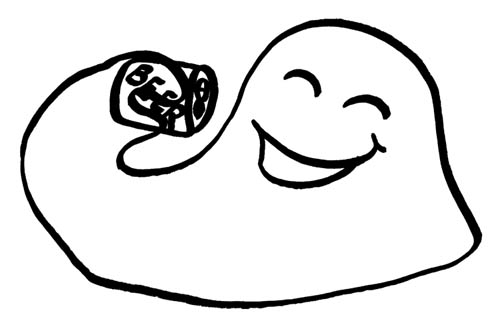
Honestly, I don’t know what exactly it is that jellyfish and slime molds do but whatever it is they do it well, which is why they’re still around despite being among the more ancient organism templates still in common use.
Jellyfish are on the rise.
Yeah, yeah, some species like moon jellies will hang out in huge blooms near the surface feeding, but that’s not what I meant. Jellyfish populations are up. They’re honing in on the open over-fished ocean and making themselves at home. Again.
And, although this makes the sea turtles happy since jellies are a favorite food staple of theirs, not much else is excited about the development. Except for those fish that like to hide out inside of their bells, assuming they don’t accidentally get eaten hanging out in there. But that’s a risk you gotta take when you’re trying to escape predation by surrounding yourself in a bubble of danger that itself wants to eat you. Be eaten or be eaten. Oh, wait…
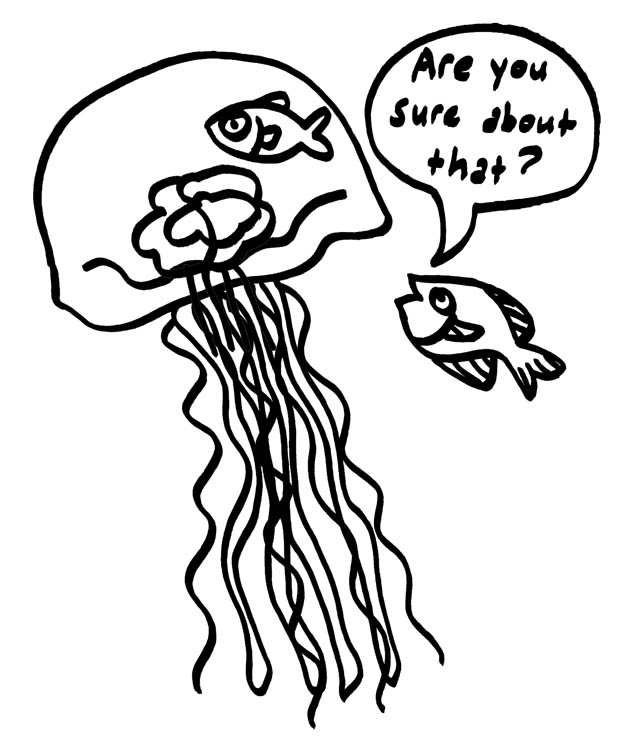
So what makes jellies so scary?
Jellyfish pack some mighty venom. Despite obvious differences in mobility, they are related to anemones and corals. But not the Man o’ War which looks similar but is actually a community of microorganisms that function together as a whole, not one creature. Not that it matters when you’re on the wrong end of a nematocyst, really. Because regardless what it’s attached to, that stings.
Box jellies are among the most venomous creatures in the world and can move of their own accord rather than just drifting about like many smaller jellyfish do. And even if they aren’t deadly, the venom from many jellyfish species will cause blisters and lesions that can take a long time to heal. So even if they do resemble free-floating plastic grocery bags, you’d do best to steer clear. Because those are some dangerous curves.
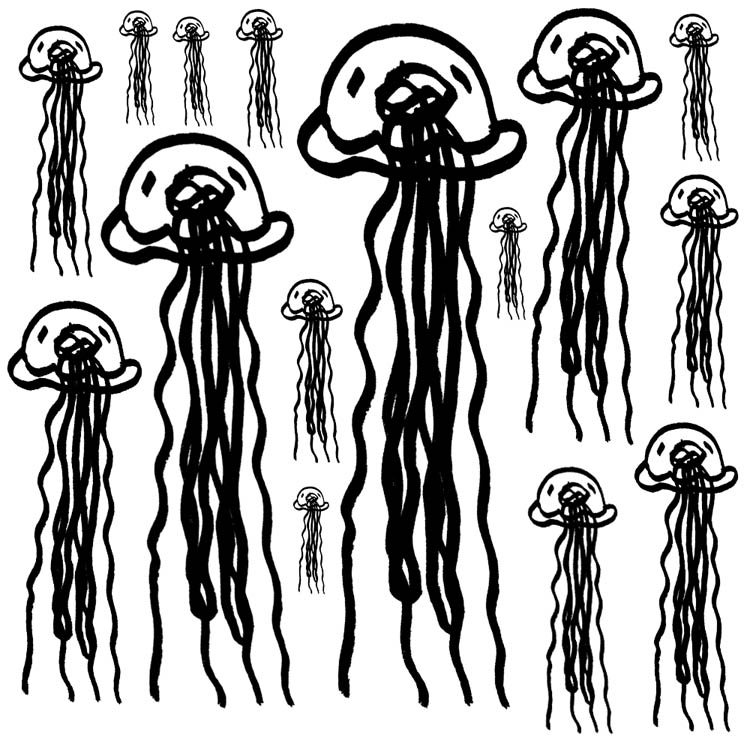
But what does this have to do with slime molds?
Absolutely nothing. I honestly don’t know enough about jellyfish or slime molds to devote the whole of a Nightmarish Nature segment to either, so they had to share. Essentially, this bit is what happened when I decided to toast a bagel before coming up with something to write about and spent a tad too much time in contemplation of my breakfast. I guess we’re lucky I didn’t have any cream cheese or clotted cream…
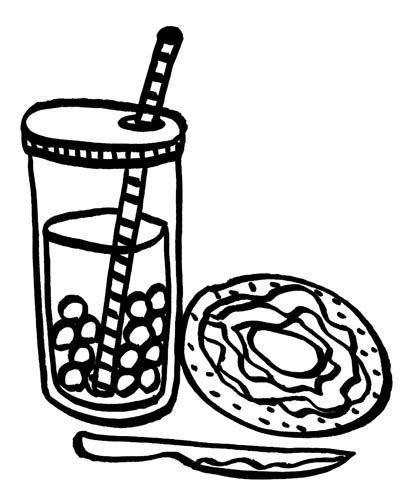
Oh, and also thinking about gelatinous cubes and oozes in the role-playing game sense – because those sort of seem like a weird hybrid between jellies and slime molds, as does The Blob. Any of those amoeba influenced creatures are horrific by their very nature – they don’t even need to be souped up, just ask anyone who’s had dysentery.
And one of the most interesting thing about slime molds is that they can take the shortest path to food even when confronted with very complex barriers. They are maze masterminds and would give the Minotaur more than a run for his money, especially if he had or was food. They have even proven capable of determining the most efficient paths for water lines or railways in metropolitan regions, which is kind of crazy when you really think about it. Check it out in Scientific American here. So, if we assume that this is essentially the model upon which The Blob was built, then it’s kind of a miracle anything got away. And slime molds are coming under closer scrutiny and study as alternative means of creating computer components are being explored.
Jellies are the Wave of the Future.
We are learning that there may be a myriad of uses for jellyfish from foodstuffs to cosmetic products as we rethink how we interact with them. They are even proving useful in cleaning up plastic pollution. I don’t know how I feel about the foodstuff angle for all that they’ve been a part of various recipes for a long time. From what I’ve seen of the jellyfish cookbook recipes, they just don’t look that appealing. But then again I hate boba with a passion, so I’m probably not the best candidate to consider the possibility.
So it seems that jellies are kind of the wave of the future as we find that they can help solve our problems. That’s pretty impressive for some brainless millions of years old critter condiments. Past – present – perpetuity! Who knows what else we’d have found if evolution hadn’t cleaned out the fridge every so often?
Feel free to check out more Nightmarish Nature here.
Original Series
Lucky Lucky Wolfwere Saga Part 4 from Jennifer Weigel
Continuing our junkyard dawg werewolf story from the previous St. Patrick’s Days… though technically he’s more of a wolfwere but wolfwhatever. Anyway, here are Part 1 from 2022, Part 2 from 2023 and Part 3 from 2024 if you want to catch up.
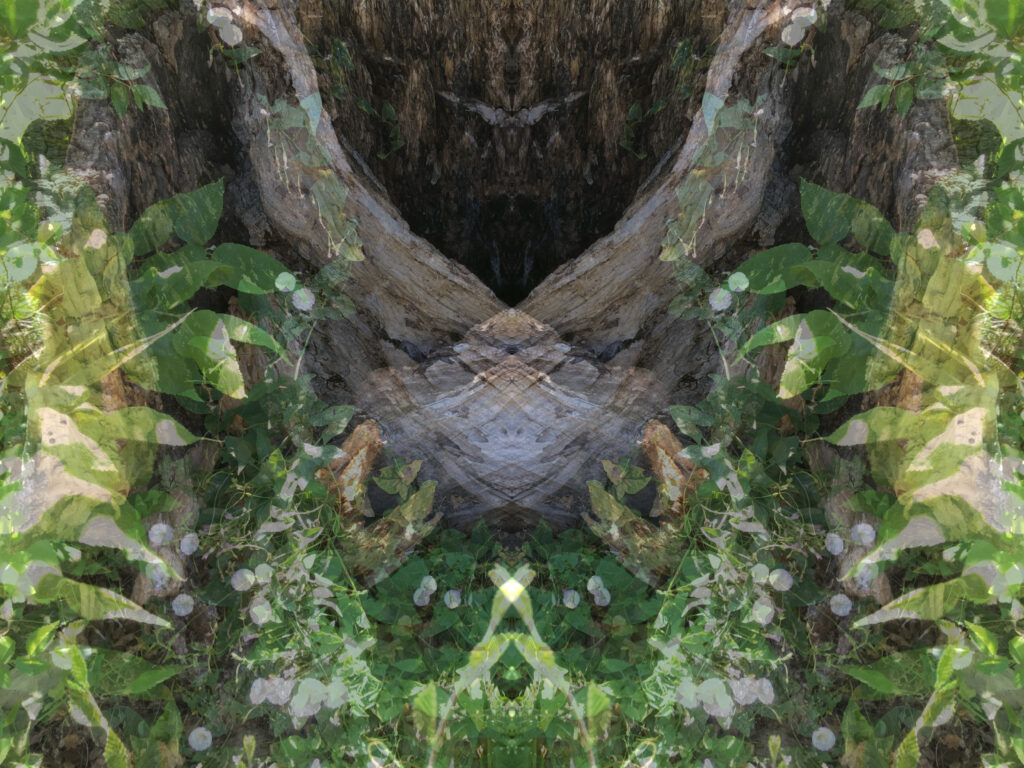
Yeah I don’t know how you managed to find me after all this time. We haven’t been the easiest to track down, Monty and I, and we like it that way. Though actually, you’ve managed to find me every St. Patrick’s Day since 2022 despite me being someplace else every single time. It’s a little disconcerting, like I’m starting to wonder if I was microchipped way back in the day in 2021 when I was out lollygagging around and blacked out behind that taco hut…
Anyway as I’d mentioned before, that Scratchers was a winner. And I’d already moved in with Monty come last St. Patrick’s Day. Hell, he’d already begun the process of cashing in the Scratchers, and what a process that was. It made my head spin, like too many squirrels chirping at you from three different trees at once. We did get the money eventually though.
Since I saw you last, we were kicked out of Monty’s crap apartment and had gone to live with his parents while we sorted things out. Thank goodness that was short-lived; his mother is a nosy one for sure, and Monty didn’t want to let on he was sitting on a gold mine as he knew they’d want a cut even though they had it made already. She did make a mean brisket though, and it sure beat living with Sal. Just sayin.
Anyway, we finally got a better beater car and headed west. I was livin’ the dream. We were seeing the country, driving out along old Route 66, for the most part. At least until our car broke down just outside of Roswell near the mountains and we decided to just shack it up there. (Boy, Monty sure can pick ‘em. It’s like he has radar for bad cars. Calling them lemons would be generous. At least it’s not high maintenance women who won’t toss you table scraps or let you up on the sofa.)
We found ourselves the perfect little cabin in the woods. And it turns out we were in the heart of Bigfoot Country, depending on who you ask. I wouldn’t know, I’ve never seen one. But it seems that Monty was all into all of those supernatural things: aliens, Bigfoot, even werewolves. And finding out his instincts on me were legit only added fuel to that fire. So now he sees himself as some sort of paranormal investigator.
Whatever. I keep telling him this werewolf gig isn’t all that it’s cracked up to be, and it doesn’t work like in the movies. I wasn’t bitten, and I generally don’t bite unless provoked. He says technically I’m a wolfwere, to which I just reply “Where?” and smile. Whatever. It’s the little things I guess. I just wish everything didn’t come out as a bark most of the time, though Monty’s gotten pretty good at interpreting… As long as he doesn’t get the government involved, and considering his take on the government himself that would seem to be a long stretch. We both prefer the down low.
So here we are, still livin’ the dream. There aren’t all that many rabbits out here but it’s quiet and the locals don’t seem to notice me all that much. And Monty can run around and make like he’s gonna have some kind of sighting of Bigfoot or aliens or the like. As long as the pantry’s stocked it’s no hair off my back. Sure, there are scads of tourists, but they can be fun to mess around with, especially at that time of the month if I happen to catch them out and about.
Speaking of tourists, I even ran into that misspent youth from way back in 2021 at the convenience store; I spotted him at the Quickie Mart along the highway here. I guess he and his girlfriend were apparently on walkabout (or car-about) perhaps making their way to California or something. He even bought me another cookie. Small world. But we all knew that already…
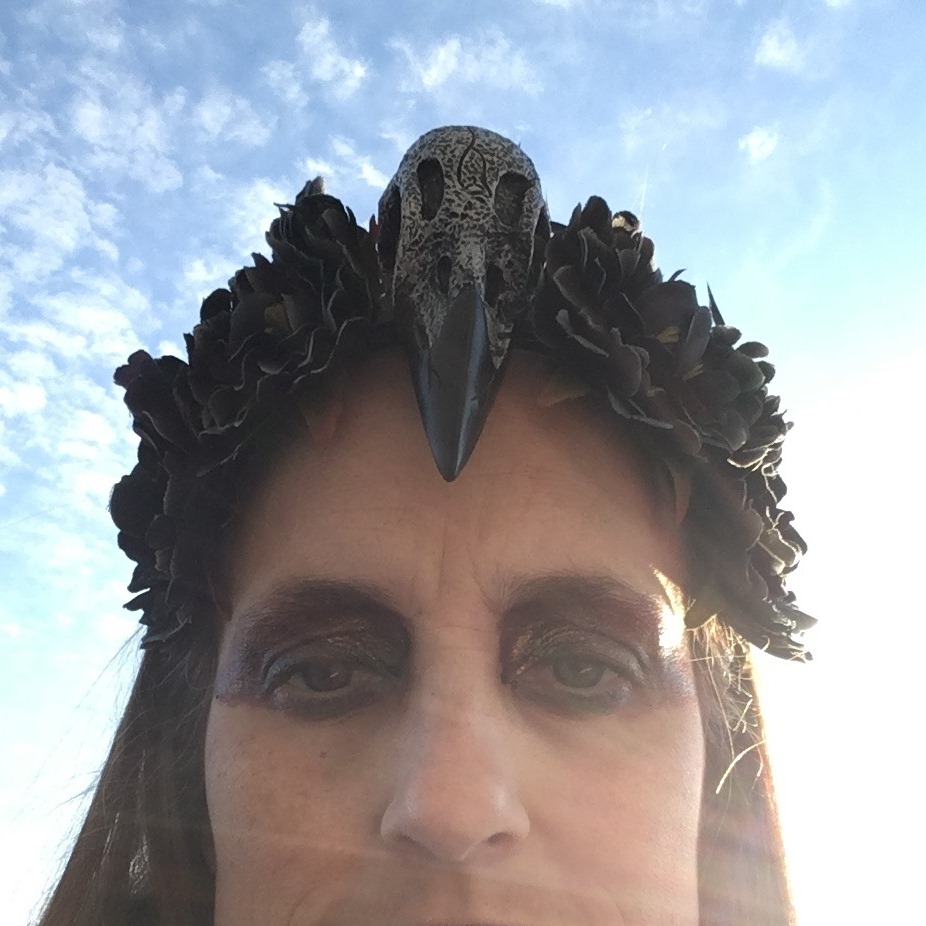
If you enjoyed this werewolf wolfwere wolfwhatever saga, feel free to check out more of Jennifer Weigel’s work here on Haunted MTL or here on her website.








